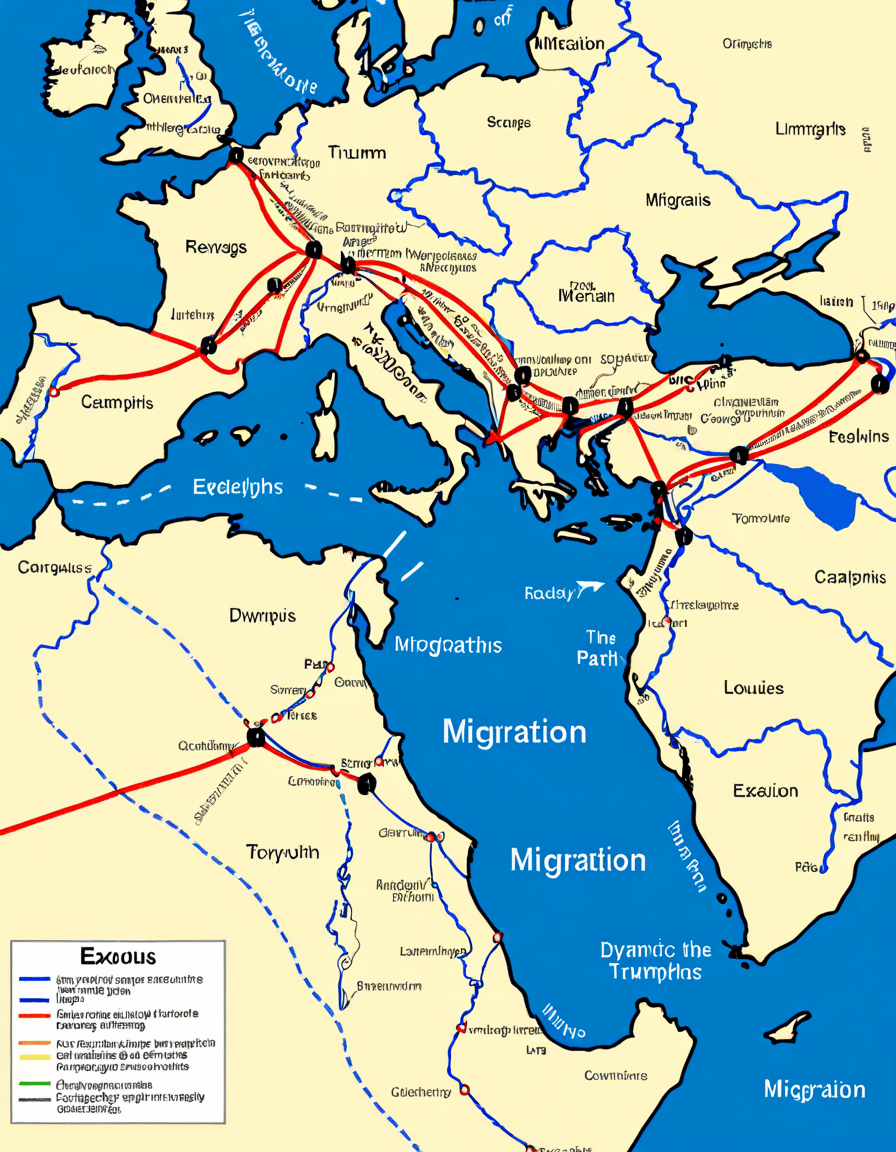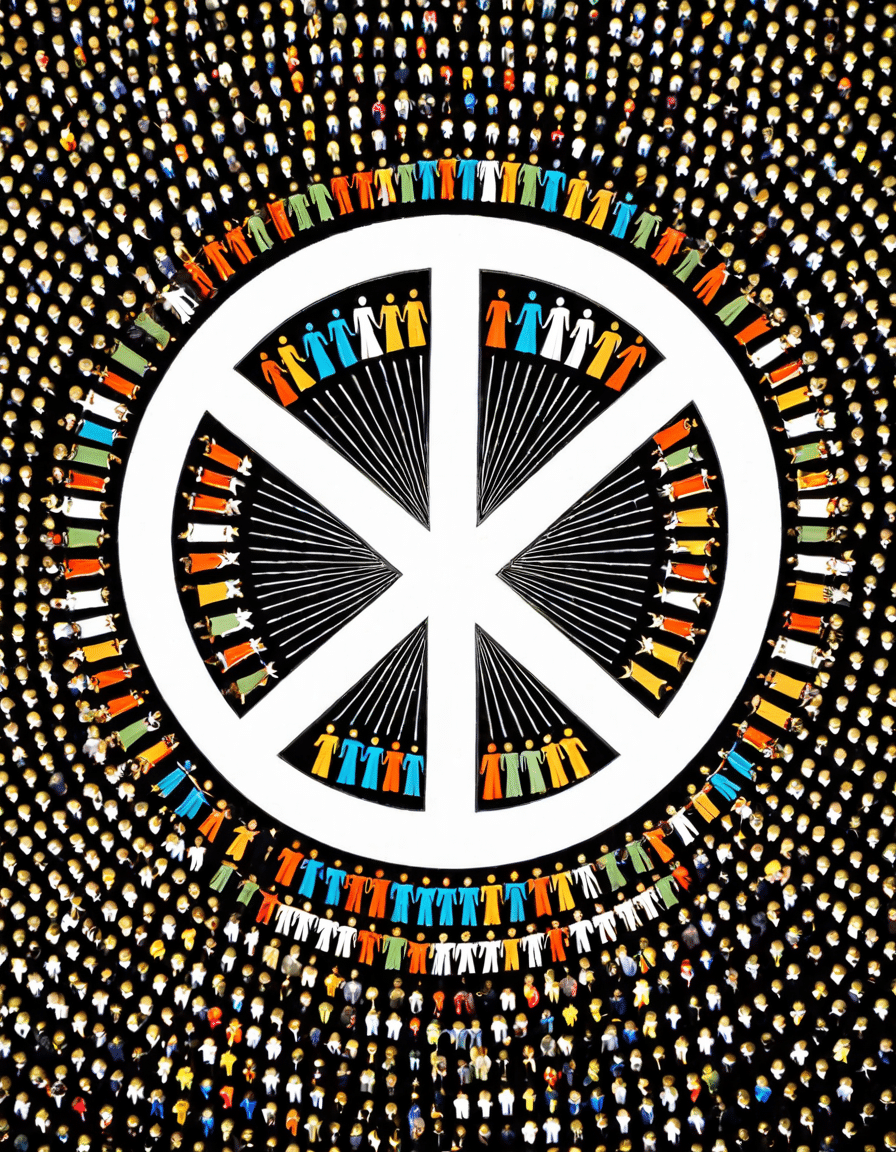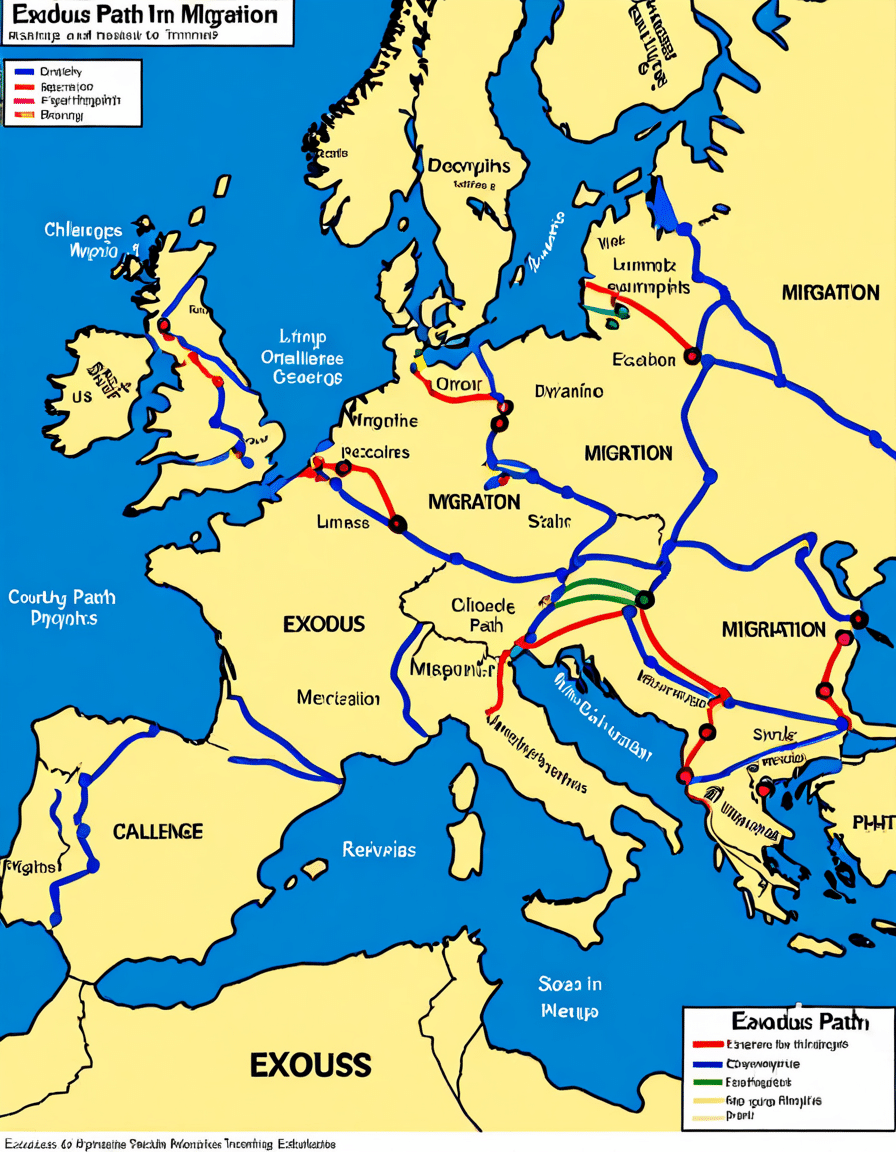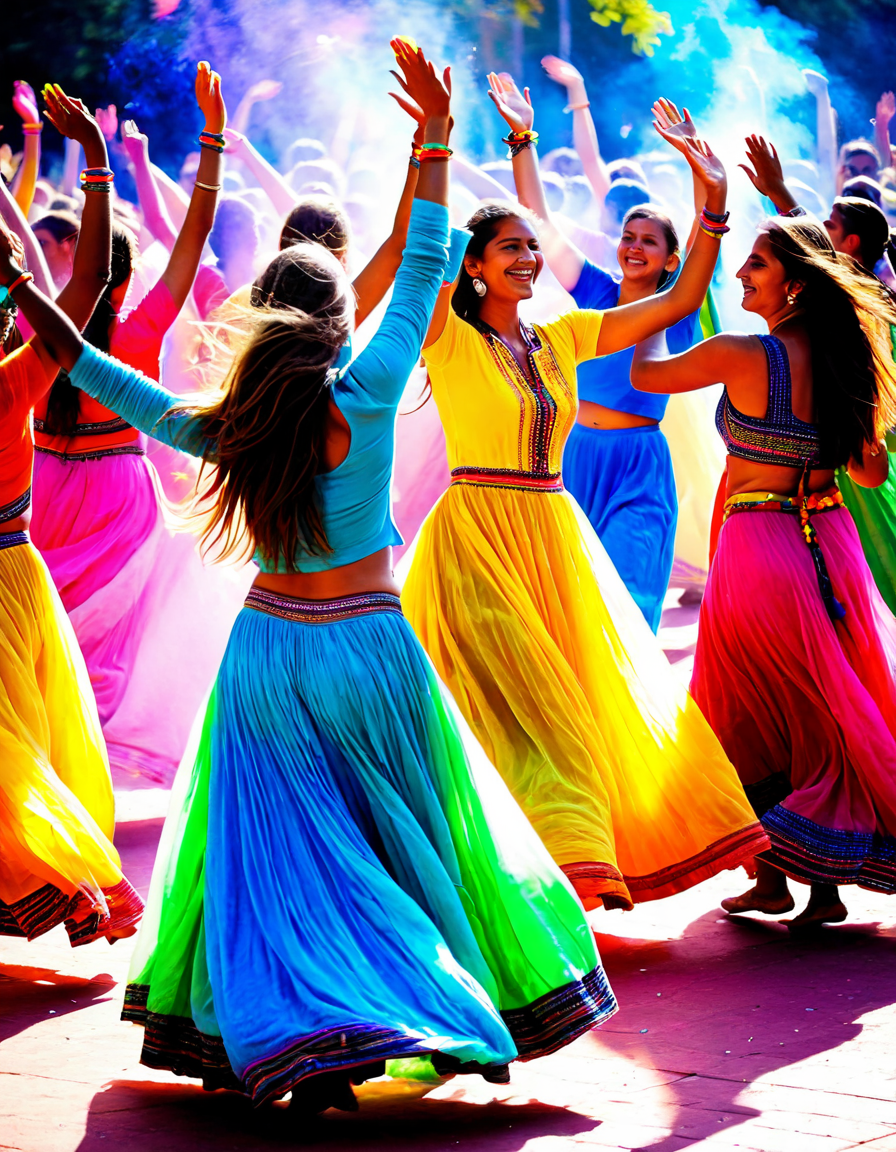The term “exodus” packs a punch, doesn’t it? It brings to mind scenes of people moving in droves, seeking better lives or escaping danger. It’s more than just a word; it’s a story of resilience, hope, and sometimes, desperation. Explore with us as we journey through multiple historical exoduses and understand their impact on society today. Buckle up—this is going to be quite the ride!

7 Significant Exoduses and Their Lasting Impact
1. The Exodus of the Israelites (c. 1446 BC)
Let’s kick things off with the epic escape from Egypt by the Israelites. Under Moses’ leadership, they fled slavery in a journey that has shaped Jewish identity for centuries. This monumental event inspires movements for freedom around the globe. Who would’ve thought a simple story could echo through time?
2. The Great Migration (1916-1970)
Ah, the Great Migration! Over six million African Americans packed their bags (or whatever they could carry) and moved from the rural South to bustling urban centers in the North. This wasn’t just a change of scenery; it transformed demographics, culture, and politics. The roots of this movement sprouted the Harlem Renaissance, a cultural explosion that redefined American music and art forever.
3. Partition of India (1947)
Now, let’s get serious for a moment. The Partition of India into India and Pakistan caused one of the most traumatic exoduses in history, with an estimated 15 million people displaced. Imagine moving with just a whisper in your heart, carrying the weight of your culture and identity. The scars from this event still affect South Asian politics and the interconnected lives of communities today.
4. Vietnam War Refugees (1975)
Following the end of the Vietnam War, 1.5 million Vietnamese sought safety abroad. This wasn’t just about leaving a warzone; millions settled in places like the U.S., creating vibrant Vietnamese communities. Their struggle for acceptance doesn’t just tell of the past, but resonates in discussions about immigration policies even today. Still hungry for that pho yet?
5. Syrian Civil War Displacement (2011-Present)
Fast forward to the Syrian Civil War, causing over 6.6 million Syrians to flee their homeland. The sight of families leaving everything behind hits hard, doesn’t it? The impact has ripple effects felt across Europe and the Middle East, sparking heated debates about humanitarian efforts. Are we doing enough to help those in dire need?
6. The Venezuelan Migration Crisis (2015-Present)
Another crisis knocks at our door with the Venezuelan migration. Political turmoil and economic collapse have pushed millions to seek a new life elsewhere, creating one of Latin America’s largest migration movements. Political discussions around this exodus reveal how interconnected our world is becoming—what happens in one country often echoes in another, like a game of dominoes.
7. Ukrainian Refugees and Displacement (2022-Present)
Lastly, the Russian invasion of Ukraine has led to a staggering 8 million people fleeing their homes. Each image or story shared pulls at our collective heartstrings. This ongoing crisis highlights geopolitical conflicts and the challenges faced by nations attracting so many refugees. How can we foster understanding and support for these displaced individuals?

The Influence of Exodus on Identity and Culture
These historical exoduses don’t just pack bags and leave. They deeply contribute to the cultural identities of displaced groups. Take the Great Migration, for instance. It fueled the Harlem Renaissance, a vibrant cultural movement influencing music, art, and literature. And let’s not forget about Vietnamese cuisine; the global culinary scene is much tastier because of it. Isn’t it fascinating how food can tell a story?
The Role of Modern Media in Shaping Perceptions of Exodus
In today’s world, the way we consume global news shapes perceptions of exoduses and those affected. The portrayal of Syrian refugees often leans towards victimhood in Western media, sparking debates around empathy versus apathy. Imagery can simplify complex human stories but also nudges us to take action.
On platforms like Instagram and TikTok, refugees have the chance to narrate their journeys. Unfiltered and real stories pave the way for richer dialogues about migration and acceptance. This shift underscores that every exodus has many stories, each deserving of a voice.
Current Exodus Trends and Future Implications
Exploring today’s trends shows a global awakening to the factors causing migration. Climate change is becoming a significant player, suggesting future exoduses will stem not just from political unrest but also from environmental crises. Moreover, technology is transforming the way we approach migration—how cool is that?
While navigating these waves of change can be challenging, there are opportunities for understanding and collaboration too! By embracing these changes as part of our shared human experience, we promote empathy and connection to one another.
All said and done, the stories of exoduses weave rich tapestries of human resilience. Each chapter of these journeys teaches us about hope, identity, and our shared future. The next time you hear the word “exodus,” remember the enduring narratives behind it.
After all, exodus isn’t just a historical term; it’s an ever-evolving narrative reflecting our trials and triumphs. So, which exodus story resonates with you the most? Let’s keep the conversation going!
And remember, when you’re feeling overwhelmed, just think—it’s all part of the grand human journey, much like some quirky surprises from entertainment. Need a laugh? Check out Punchline for a good chuckle!
Ready to dive deeper? Explore some “Salem’s Lot” for a thrilling eerie experience or let’s groove to Cage The Elephant for some tunes! Whether you’re into heartfelt stories, spooky vibes, or just need to unwind, there’s something here for everyone.
Exodus: Fascinating Trivia About a Historical Journey
The Roots of Exodus
The term ‘exodus’ comes from the Greek word “exodos,” meaning a straightforward departure. But it’s more than a trip; it represents a massive journey of liberation and transformation. Historically, when folks hear about the exodus, they often recall the Biblical story of Moses leading the Israelites out of Egypt. However, exoduses have happened throughout history, including the migration of various groups escaping persecution or seeking better opportunities. Interestingly, some modern tales echo these age-old journeys, like the surprising twists in upcoming films such as Freakier Friday. You never know how those themes of breaking free may resonate!
Exodus and Modern Connections
In today’s society, the impact of the exodus is still apparent as people worldwide navigate their own struggles for freedom and safety. For instance, stories of refugees in need of sanctuary have parallels with historical exoduses, sparking empathy and understanding. Y’know, when figuring out what empowerment looks like, we can think of concepts tied to numbers like “777,” which often symbolizes spiritual growth and divine protection. The idea that everyone’s seeking a safe haven really puts things into perspective, doesn’t it?
Broader Cultural Impact
Religious texts and cultural narratives surrounding the exodus have woven themselves into literature and film, even finding their way into adaptations like “Salem’s Lot.” It’s fascinating how these archetypes resurface. Who would have thought a story about bloodsucking vampires could hold echoes of escape? Plus, the exodus theme shows up in unexpected places like Hairy Pussing, reminding us that search for freedom is a universal storyline, spanning genres and mediums. Not to forget the creative talents driving these projects, including emerging stars like Lilly Jay, who’s making waves in today’s film circles!
In conclusion, the exodus is more than a historical event; it’s a vital part of human experience. As we reflect on its impact, we can see that the journey continues to inspire storytelling and shape culture in ways we might not even realize. Whether through a dynamic plot twist or the enduring urge to seek safety, the essence of the exodus remains alive and impactful. So, the next time you catch a flick or read a novel, keep an eye out for those threads of liberation woven in the fabric of our favorite stories.























